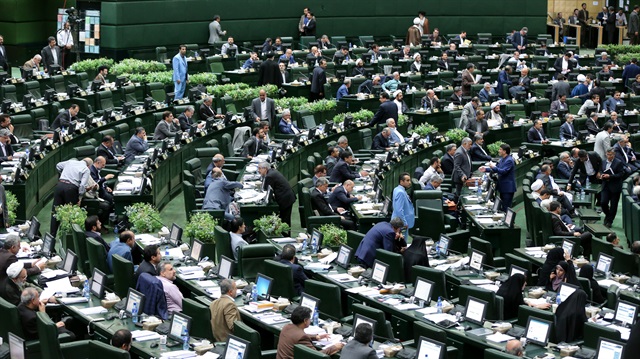
Iran's parliament sacked the minister of economic affairs and finance on Sunday, state media said, amid a sharp fall in the rial currency and a deterioration in the economic situation.
The Iranian economy is dogged by high unemployment and the rial has lost half its value since April. The United States reimposed some sanctions in early August and a second set targeting Iran's oil industry is due to take effect in November.
The head of the elite Revolutionary Guards said Iran faced "unique" challenges and the foreign minister accused the United States of waging "psychological war" on his country.
The Iranian parliament backed the removal from office of Masoud Karbasian, minister of finance and economic affairs, by 137 votes to 121 against, state media said.
The sacking was the latest in a continuing shakeup of top economic personnel. In early August Iranian lawmakers voted out the minister of labour and last month President Hassan Rouhani replaced the head of the central bank.
The U.S. sanctions, reimposed after President Donald Trump pulled the United States out of a 2015 international deal aimed at curbing Tehran's nuclear programme, have exacerbated an already difficult economic situation in Iran.
"(America's) focus is on a psychological war against Iran and its business partners," Foreign Minister Mohammad Javad Zarif said on Sunday, according to the Tasnim news agency.
"From the time that Trump announced the withdrawal from the nuclear deal, America has not been able to reach its goals," Zarif added, according to the Iranian Students' News Agency (ISNA).
Other parties to the 2015 accord - China, Russia, Germany, Britain and France - are trying to salvage the deal, which lifted some economic sanctions against Iran in return for curbs on Tehran's nuclear programme. But their companies now face the risk of U.S. penalties if they do business with Iran.
Washington also wants Tehran to end its support for militant groups in Syria and Iraq.
Protests linked to the tough economic situation in Iran began last December, spreading to more than 80 cities and towns and resulting in 25 deaths.
Sporadic protests, led by truck drivers, farmers and merchants in Tehran’s bazaar, have continued regularly since then and have occasionally resulted in violent confrontations with security forces.
The head of Iran's elite Revolutionary Guards, Major General Ali Jafari said on Sunday Iran was facing a "unique, complicated and sensitive" situation, with both external and internal threats to its security, Tasnim reported.
The U.S. withdrawal from the nuclear deal has undermined Rouhani, a relative pragmatist, and emboldened his hardline opponents who always opposed any compromises with Washington.
Zarif appeared to offer guarded criticism of Rouhani's opponents.
"There are some in the country who, instead of laying the groundwork for using the opportunities presented by the nuclear deal, chose a political fight," Zarif said, according to ISNA. "And this political fight led to despair and disappointment."











